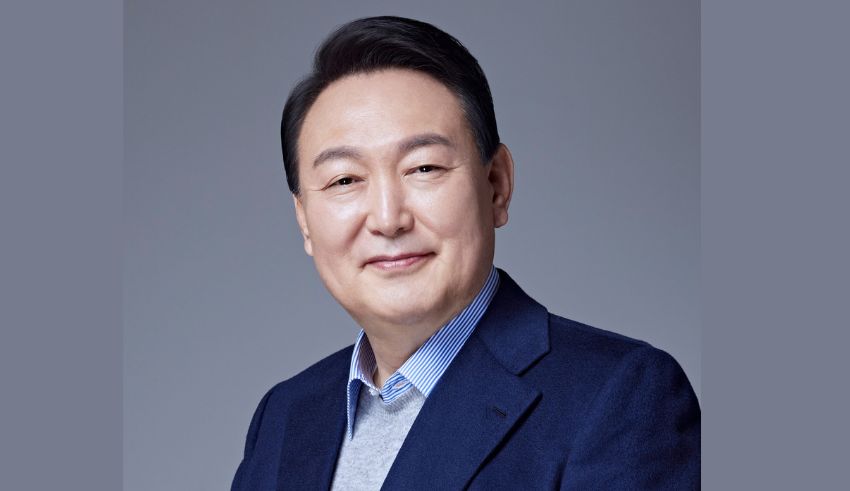
With its aging population putting increasing strain on the national pension system, one of the biggest in the world with $830 billion in assets, South Korea is facing a major dilemma. Aiming to rebuild confidence among people and guarantee economic security for next generations, President Yoon Suk-yeol issued a firm appeal for quick and thorough reform of the national pension system on Thursday. With his declaration, South Korea’s continuous battle to modify its social safety net to fit the needs of a country fast aging signals a turning point.
Confidence Lost Over Generations
President Yoon underlined in his speech the rising disenchantment with the present pension system, pointing out that it has lost the faith of the younger generation worried about system sustainability as well as the elderly, who depend on it for their living. “Now is the time to fundamentally reform the national pension system that has the confidence of neither the elderly nor the youth,” Yoon said in a presidential office in Seoul press conference. This lack of confidence stems from the general conviction that, especially as the population ages, the system could not be able to give sufficient support in the future.
The Call for Fair and Sustainable Change
President Yoon underlined that in order to guarantee its long-term survival, the pension fund has to see basic adjustments. He noted that compared to other industrialized nations, the present contribution rates—which set at 9% of income for wage earners and company owners—are far lower. For example, the United States contributes 10.6%, Japan’s is 18.3%, and the average among Organisation for Economic Co-operation and Development (OECD) nations is 15.4%. Yoon suggested raising the contribution rates to make the fund sustainable with a varied rate of increase across several age groups to guarantee equity and help to solve this discrepancy.
Yoon added, “We will pursue reforms that will be persuasive to the youth who will be paying into the fund the longest and will be receiving pension the last,” appreciating the need of making the system fair for younger generations. Maintaining the sustainability of the fund and guaranteeing that it stays fair and equitable for all contributions, regardless of age depend on this strategy.
A Coming Crisis: Pension Fund Depletion
Projections showing the national pension fund, created in 1988, could be exhausted by 2055 highlight the importance of change. When payments to retirees are forecast to exceed the contributions paid by present workers, this depletion is expected to start as early as 2041. For millions of South Koreans, especially the elderly who currently get some of the lowest pension benefits among OECD nations, such a situation would have terrible effects on their financial stability. With an average pension payout of 31.2% of average salary now in South Korea compared to the OECD average of 50.7%, the nation’s older population is among the poorest in the developed world.
Previous Difficulties in Pension Reform
For each consecutive president, reforming South Korea’s pension system has been a long-standing policy objective; but, political differences and the possibility of alienating voters have slow down progress. The complexity of the problem and the possibility for major social and financial disturbance have made the subject divisive in South Korean politics. Lack of agreement on how to handle the issue and the worry of reaction from impacted groups have often caused past reform efforts to stall.
Nonetheless, the government of President Yoon seems resolved to stop the cycle of inertia. Yoon is trying to create a broad coalition of support for his suggested reforms by characterizing the necessity for reform in terms of generational justice and long-term sustainability. One of the primary components of his approach to appeal to younger voters, who are more dubious of the current system’s capacity to support their retirement, is his concentration on making sure the system stays viable for next generations.
President Yoon Suk-yeol’s appeal for action marks a turning point in South Korea’s social and economic policies as the country struggles with the issues raised by an aging population and a pension system in need of immediate change. By making the pension system more fair and sustainable, the proposed changes hope to rebuild trust in it so that it may keep giving income security for all people, now and in the future. Though there are many difficulties on the road to reform, it is still to be seen whether Yoon’s government can go past political roadblocks impeding past initiatives.
Stakes could not be greater as the clock counts toward the expected pension fund depletion. The success of these changes will not only define the financial situation of millions of South Koreans but also influence their capacity to negotiate the demographic obstacles of the next decades. The eyes of the country and the globe will be keenly observing as President Yoon advances his ambitious reform program to determine if South Korea can effectively modify its social safety net to fit the demands of a fast changing society.























